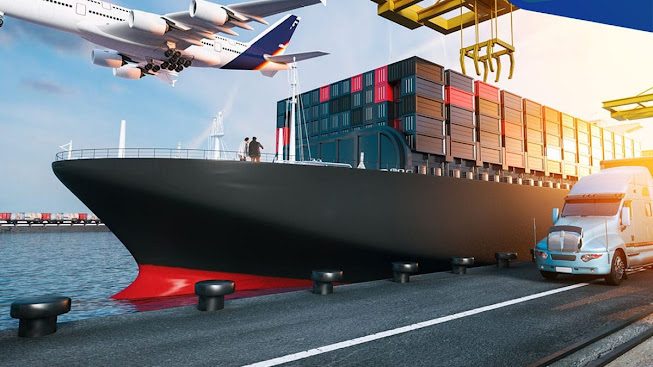Beyond the Key and Card: Revolutionizing Cargo Security with Biometrics and Access Control
The security of air cargo facilities and the goods they house is of paramount importance. Traditional security measures, such as keycards and PIN codes, are susceptible to breaches and unauthorized access. In response to these challenges, the air cargo industry is turning to biometrics and advanced access control systems to bolster security. In this blog post, we will explore how biometrics and access control are transforming cargo security, their benefits, and real-world applications in the industry.
 |
| Beyond the Key and Card: Revolutionizing Cargo Security with Biometrics and Access Control |
The Imperative for Enhanced Cargo Security
Securing cargo facilities against theft, tampering, and unauthorized access is an ongoing challenge. Traditional access control methods have limitations, including the risk of keycard cloning or unauthorized sharing of access credentials. In response to these vulnerabilities, the cargo industry is seeking more robust solutions.
The Power of Biometrics and Advanced Access Control
Biometrics, which involve the use of unique biological or behavioral characteristics for identity verification, offer a highly secure means of controlling access. When integrated with advanced access control systems, they enhance cargo security in several ways:
- Uniqueness: Biometric identifiers, such as fingerprints, iris patterns, and facial features, are highly individualized, making it nearly impossible for unauthorized individuals to gain access.
- Tamper Resistance: Biometric data is difficult to replicate or forge, reducing the risk of fraud or identity theft.
- Accuracy: Biometric authentication is highly accurate, minimizing the risk of false positives or negatives.
- User Convenience: Biometric access control systems are user-friendly and eliminate the need to carry physical access cards or remember PINs.
Benefits of Biometrics and Access Control in Cargo Security
- Enhanced Security: Biometrics provide a robust layer of security, reducing the risk of unauthorized access to cargo facilities.
- Reduced Operational Costs: Biometric systems eliminate the need for physical access cards, reducing administrative costs and the risk of lost or stolen credentials.
- Real-Time Monitoring: Advanced access control systems can provide real-time monitoring and alerts, allowing security personnel to respond quickly to any security breaches.
- Compliance: Biometric access control can assist cargo operators in meeting regulatory security requirements.
Real-World Applications
- Biometric Scanners at Entry Points: Cargo facilities are deploying biometric scanners, such as fingerprint or facial recognition systems, at entry points to verify the identity of individuals seeking access.
- Iris Recognition for High-Security Areas: In high-security cargo facilities, iris recognition systems are used for access control due to their exceptional accuracy.
- Cargo Warehouse Access Control: Biometric access control is employed in cargo warehouses to ensure that only authorized personnel can enter sensitive areas.
Challenges and Considerations
While biometrics and advanced access control systems offer significant benefits, they also present challenges:
- Privacy Concerns: Collecting and storing biometric data requires strict adherence to privacy regulations and data protection measures.
- Initial Investment: Implementing biometric systems can involve a substantial upfront cost.
- Integration: Ensuring seamless integration with existing security infrastructure is essential.
Conclusion
Biometrics and advanced access control systems are revolutionizing cargo security by providing a highly secure, efficient, and user-friendly means of controlling access to cargo facilities. As the air cargo industry continues to evolve, ensuring the integrity and security of cargo shipments remains paramount. Biometrics offers a robust solution that not only enhances security but also reduces operational costs and ensures compliance with regulatory requirements. By embracing these innovative technologies, cargo operators are reinforcing their commitment to safeguarding valuable cargo and maintaining the integrity of the supply chain.
Lars Winkelbauer
Lars Winkelbauer



Comments
Post a Comment